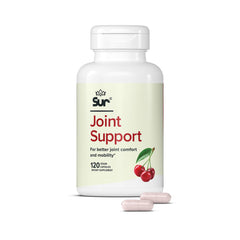As the fire that was my running career dwindled to an ember and was eventually snuffed out by nagging injuries and a general lack of motivation, I sought another way to channel my competitive and athletic energy. I committed myself to rock climbing for a year. I told myself that non-endurance sports were the way to go. Less time commitment, more fun, chill vibes. Why would I ever go back? But like many that eventually find themselves in the world of swim/bike/run, I didn’t initially seek it out. Triathlon found me.
Sure, that’s pretty cliche, but I know I’m not unique in that feeling. There are so many reasons why people ‘fall’ into the sport of triathlon: bike commuter looking for a challenge, high school swimmer looking for out of the pool glory, addict looking for a positive energy outlet. The list goes on. In my mind though, there is one reason that reigns among the rest.
Success in triathlon, no matter how you define it, is not limited to the young.
First, I’m going to need to qualify that statement a bit. On the pro level, success in the short course world (ITU, Olympics), is a young (wo)mans’ game. With a few exceptions, those that enter the sport from a young age are often the ones we see competing for medals. I once had olympic dreams before realizing that even at age 21, it was probably too late for me. That is when I started looking into long course.
Let's take a look at the ages of the top 5 finishers at the 2019 Ironman World Championships.
Women: 36, 25 (you’re killing me Lucy Charles-Barclay!), 36, 32, 35
Average age: 32.8
Men: 38, 39, 35, 36, 36
Average age: 36.8
These are the absolute best at the sport in the entire world, and at the time I was starting to see the appeal of long course triathlon, the men were closer to my parents’ age than my own. For me, there was suddenly no rush to carve my way into the sport. I didn’t feel the need to sign up for an Ironman at 23 or lose my ability to complete one forever. In fact, it encouraged me to do quite the opposite. The best in the world are that way, partially because they themselves exhibited patience in their own rise to the top. In planning my own future in the sport then, what lessons can I learn from those who went before me?
It’s clear the inherent longevity in the sport is in part due to the ability to stay (relatively) injury free thanks to the option to shift focus among the disciplines depending on your body. When a runner gets injured, what do they do? Swim or bike to try to stay in shape. Well that’s pretty dang convenient for us triathletes isn’t it? This isn’t to say that triathletes don’t get injured, but surely these top pros hadn’t made it nearly two decades in the sport without learning to meter their efforts based on what their bodies needed.
Another thing that became clear watching the boomers mop the floor with my generation on the lava fields of Kona was the intangible benefit of pure racing experience. While some very hyped Kona first timers struggled, those with the memories and wisdom from past years defied expectations to claim their spot at the top once again. I was once told that triathlon legend Andy Potts tries something new every single race. It’s hard to imagine each of those benefitted him on the day, but considering his impressive career, I think it’s safe to say Andy is a racer who is ready for anything that comes his way.
All this is good and dandy, but what does it mean to the average mortal triathlete? After all, we can’t all be the best looking man on the planet and the world’s best triathlete despite turning 40... We need to allow ourselves to slow down and look at our long term goals, whether that be an Ironman or a sub 90 minute sprint. Good news. If you’re 20, your best days are ahead of you. If you’re 45, your best days are ahead of you also. We can always train smarter, build up our bodies, and be more knowledgeable thanks to the (many) mistakes we make each race.
For me, this means building confidence and experience through racing 70.3 until I feel the pull of a full iron distance. I can rest easy knowing that next year’s me will be stronger and more capable than this year’s me. So let’s say thanks to the role models of longevity in our sport, whether they be world champions or retirees with funny interpretations of the word retirement.
[image url="https://cdn.shopify.com/s/files/1/1452/7454/files/longevity-in-triathlon-lionel.png?v=1632859307" title="Ben Deal with Lionel Sanders as an age group triathlete and then as a pro triathlete" description="Photo provided by Ben Deal"]



